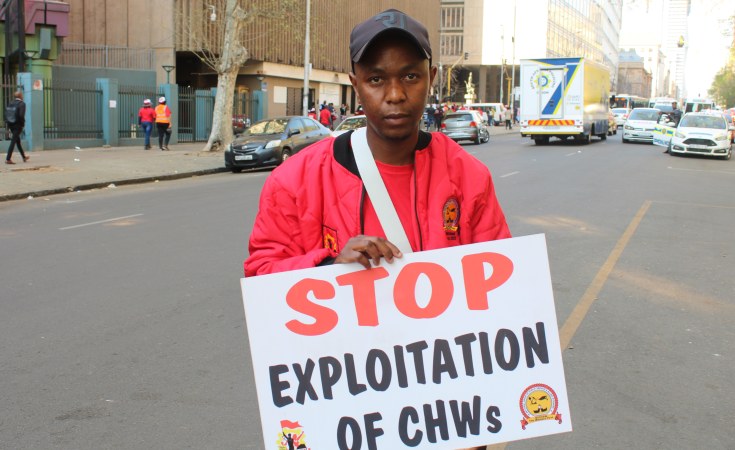Trade union-led protests have called on the government to reign in runaway inflation and rising costs. South Africa is still reeling from the impact of the coronavirus pandemic.
Workers took to the streets in the South African city of Pretoria on Wednesday, following calls from the country's biggest trade unions to protest rising inflation and power cuts.
Hundreds of people marched on the Union Buildings where the presidency is housed. The protesters called on President Cyril Ramaphosa and his government to bring rising prices and the rising cost of living under control.
"We cannot breathe," Zwelinzima Vavi, general secretary of the South African Federation of Trade Unions, told the crowd.
"We cannot compromise when we know that, yesterday and today, at least 14 million people are forced to skip a meal a day ... because they simply cannot afford to buy a plate of food," Vavi said.
South Africa's struggling economy
South Africa was hit hard by the coronavirus pandemic with an estimated 2 million jobs lost, bringing its unemployment rate up to 35%.
Inflation has hit 7.8% and the soaring cost of fuel has led to rolling blackouts as the state-owned power company Eskom struggles to meet electricity demands.
The price of food and nonalcoholic beverages had gone up 9.7% and electricity tariffs were up 7.5%, the national statistics agency reported on Wednesday.
"The economy has gone down, especially for us poor teachers. ... I am struggling to pay my debts because of the interest rate. ... Petrol is going up, food prices are going up, even our medical aid premiums are increasing," schoolteacher Moalusi Tumame said.
"That is a problem because as a teacher I can no longer afford to live the life that I deserve to be living," Tumame said.
Government responds to protesters
The trade unions blame the country's ruling party, the African National Congress (ANC), for the cracks in the economy, which were already visible before the pandemic began.
"It is a societal struggle," said Mike Shingange, deputy director of the Congress of South African Trade Unions (COSATU).
Without action, "our future is doomed, the future of our young people is doomed," Shingange said. "We have to fight now."
Minister in the Presidency Mondli Gungubele met with protesters and said pledged that the issues were a priority for the government.
"We agree with you that, unless the government deals with inequality, it will be irrelevant," Gungubele said.
(AP, AFP)


